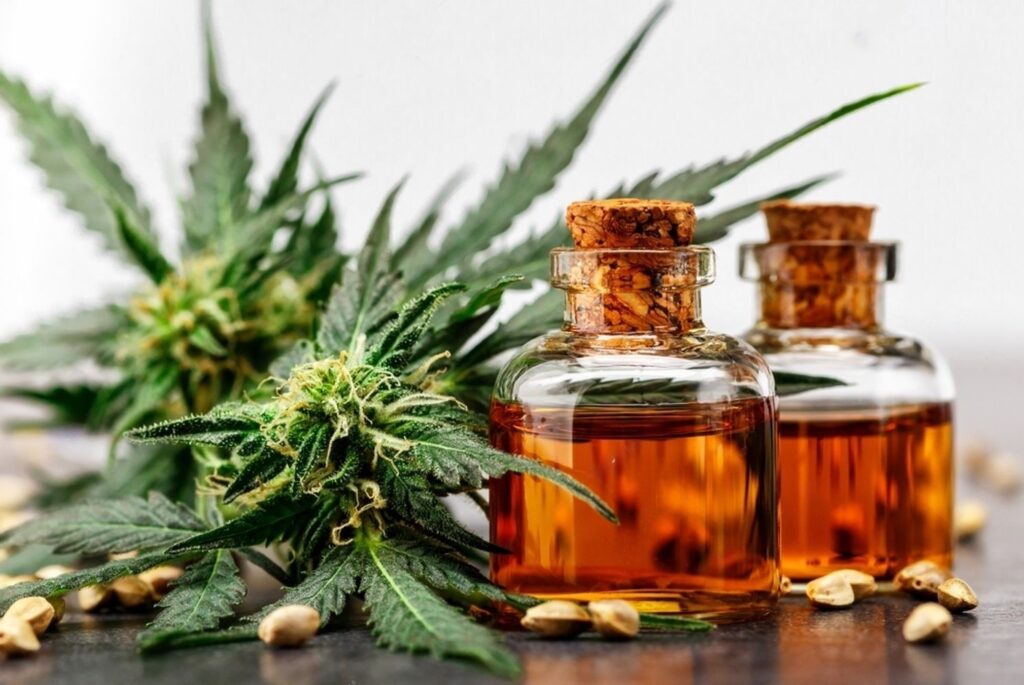Table of Contents
Uncover the health benefits of medical marijuana and its role in PTSD and chronic pain management. Discover the fascinating connection between cannabis and PTSD as researchers reveal the potential of THC to reduce anxiety and enhance extinction learning. Explore the diverse forms of medical cannabis and their promising outcomes for chronic pain relief.
Unlock the Benefits of CBD for Enhanced Focus and Concentration
Delve into the advantages of CBD for promoting focus and concentration, accompanied by recommendations for quality products. Beyond this, discover the numerous other health benefits of medical cannabis, including its potential to prevent and regulate diabetes, cancer, depression, autism, seizures, glaucoma, and bone healing. Additionally, medical cannabis has shown promise in slowing down the progression of Alzheimer’s disease and alleviating arthritis pain.

Trust Alternatives CA for Your Reliable Cannabis Connection
Turn to Alternatives CA as your trusted source for reliable cannabis options. Elevate your well-being with medical marijuana—your gateway to relief and focus awaits!
Cannabis and PTSD: Unraveling the Connection
A team of researchers at Wayne State University in Detroit, MI, conducted a study on the amygdala response of individuals dealing with trauma-related anxiety, such as PTSD. The amygdala, a part of the brain, plays a crucial role in processing emotions, particularly fear and anxiety. The study found that low doses of THC, the primary psychoactive compound in cannabis, can effectively reduce fear and anxiety in situations designed to trigger these emotions. This suggests that medical marijuana may hold promise in preventing heightened anxiety in threatening situations.
Another study, conducted by researchers at Brazil’s Federal University of Parana, delved into the role of cannabis in extinction learning, a process by which the brain weakens or eliminates the association between a stimulus and a negative response. Individuals with PTSD often struggle with extinction learning, making it difficult for them to overcome traumatic memories and the associated anxiety. The Brazilian study found that low doses of THC or THC combined with CBD, another cannabinoid in cannabis, can enhance extinction learning, reducing the intensity of challenging memories and overall anxiety responses.
These studies shed light on the potential mechanisms behind medical marijuana’s therapeutic effects in PTSD. THC appears to drive improvements in extinction learning, while CBD helps alleviate potential side effects from higher THC doses. While these studies provide valuable insights, further research is needed to fully understand the efficacy and safety of cannabis as a treatment for PTSD. Future studies may help clarify the optimal dosage, administration methods, and potential risk factors associated with cannabis use for PTSD.
How Does Cannabis Work for Pain?
Cannabis has shown promise in alleviating various types of chronic pain, including nerve damage and inflammation. It comes in different forms, such as edibles, topicals, and sublingual tablets. When THC is ingested or inhaled, it activates the brain’s cannabinoid receptors, triggering the reward system and reducing pain. While THC produces a psychoactive high, CBD interacts with pain receptors without causing euphoria.
Health Effects of Marijuana in Pain Management
In pain management, Cannabis indica has demonstrated significant effects on issues like non-migraine headaches, neuropathy, spasticity, and joint pain, according to participant reports.
Research Findings
Recent investigations have delved into the impact of cannabis on chronic pain. Some studies focused on specific components of the cannabis plant, while others examined the effects of the entire plant. Consequently, further research is essential. The utilization of individual components, such as CBD oil, allows for the scrutiny of particular ingredients, whereas employing the entire plant induces what is known as an entourage effect. In this phenomenon, various components collaborate to enhance the overall impact.
Medical Cannabis for Chronic Pain: Research Findings
A 2015 review consolidating research on cannabis and cannabinoids for diverse chronic pain conditions revealed positive outcomes in several trials. The researchers proposed that cannabis or cannabinoids could be efficacious in addressing certain forms of chronic pain, including neuropathy (nerve pain).In a 2016 research paper, the use of medical marijuana for cancer pain was associated with a 64% reduction in opioid use, a 45% improvement in the quality of life, and fewer medication side effects. Additionally, participants reported a decrease in overall medication usage.
Smaller-scale studies have indicated advantages for different chronic pain types. Notably, approximately 70% of around 17,000 individuals with cancer reported enhanced pain relief and well-being following cannabis use. Individuals with chronic migraines also observed a reduction in migraine episodes with the use of the drug. Despite these positive findings, additional research is imperative, particularly regarding the exploration of various strains, dosages, and delivery methods for medical marijuana in managing chronic pain.
A July 2018 Australian study concluded that cannabis use did not alleviate pain symptoms or reduce the necessity for opioid medications. However, it’s important to note that the study primarily relied on reports from recreational cannabis users. The potential efficacy of cannabis for medicinal purposes may yield different outcomes and warrants further investigation.
Frequently Asked Questions
Here are some commonly posed questions regarding cannabis and its relationship to chronic pain.
What is the recommended dosage of cannabis for pain relief?
- The best cannabis strains for chronic pain contain THC (delta-9-tetrahydrocannabinol). Any marijuana strain with over 20% THC should be considered very strong. Earlier studies indicate that 10 milligrams of THC, a compound in medical marijuana, provides pain relief comparable to codeine’s 60 mg dose. In the same way, 20 mg of THC is suggested to be as effective as 120 mg of codeine. However, additional research is necessary to delve deeper into this subject.
How should severe chronic pain be managed?
- There isn’t a one-size-fits-all approach for addressing severe chronic pain. Various strategies may be employed, including the use of analgesics such as NSAIDs, acetaminophen, and aspirin. Medications like opioids and antiepileptic drugs are also potential options. Some studies propose that cannabis may be beneficial in managing neuropathic pain, but further research is essential to validate these findings.
The Potential Benefits Of Cannabis In Managing Chronic Pain
Numerous studies highlight the advantages of using cannabis for chronic pain relief, with some suggesting its efficacy rivals that of potent opioids. Cannabis generally exhibits minimal side effects, especially when compared to opioids. However, the lack of regulation in many cannabis-based therapies raises concerns about product composition and quality. Despite this, the evidence supports the potential benefits of cannabis in managing chronic pain.
With various cannabis strains available, individuals can explore alternatives if one proves ineffective. It is advisable to maintain a low dosage, particularly for those new to cannabis use. Individuals considering medical cannabis should engage in a detailed discussion with their doctor, addressing potential risks and benefits, and ensure legal and reputable sources for their medications.
Cannabis for Focus and Concentration
CBD has garnered attention for its potential benefits in enhancing focus and concentration, primarily by interacting with the endocannabinoid system. It may alleviate stress and anxiety, indirectly boost energy levels through improved sleep, reduce inflammation, and positively impact memory. Sativa strains, rich in cannabinoids and terpenes like pinene and limonene, are often favored for their energizing effects on focus. Other factors influencing focus include dosage, method of consumption, cannabinoid profile, terpene profile, external environment, mindset, and overall lifestyle habits.
The article recommends several CBD products for focus, including tinctures, capsules, cartridges, and gummies, each catering to specific preferences and needs. The ideal timing for CBD consumption depends on individual goals, whether for daytime focus or relaxation and improved sleep. Microdosing is suggested as a method to maintain a consistent level of cannabinoids in the system, providing a balanced cognitive enhancement without the potential highs and lows associated with larger doses.Alternatives CA is a reliable source for exploring a variety of CBD products that align with individual preferences and goals.
Final Thoughts
Explore the promising link between cannabis and PTSD, with low THC doses showing potential for anxiety relief. Explore the various other health benefits of medical marijuana. Delve into chronic pain management, spotlighting cannabis benefits. Discover CBD’s impact on focus with practical product recommendations. Trust Alternatives CA for reliable cannabis options. This concise guide empowers you to navigate the therapeutic realm of cannabis confidently.

